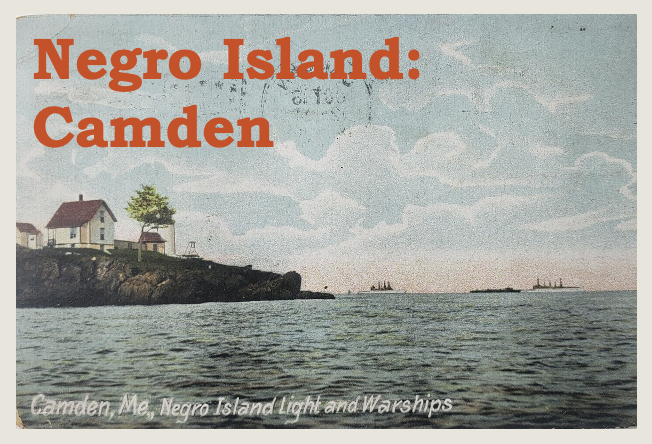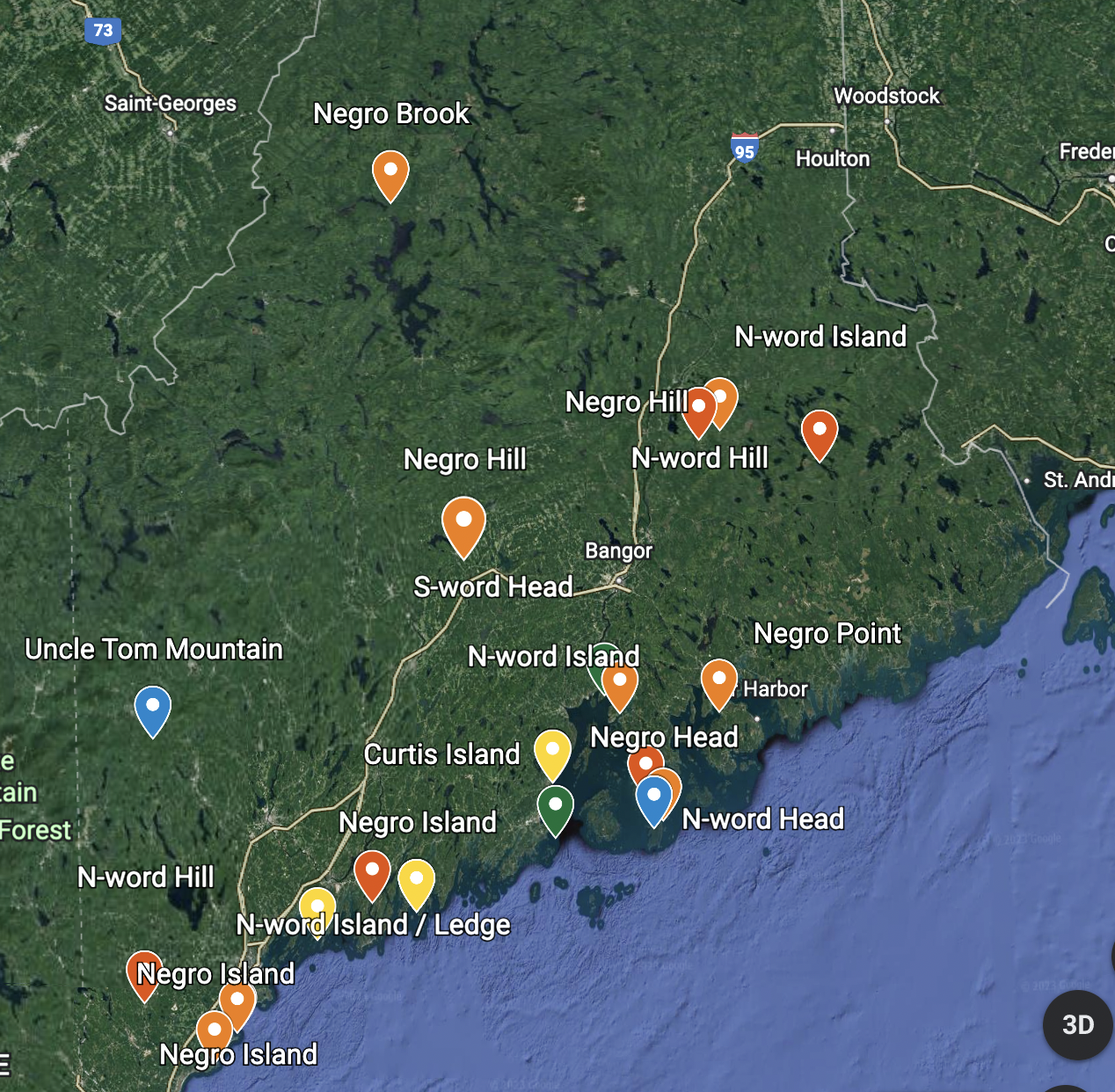Upper and Lower Negro Island. Uncle Tom’s Mountain. White S-word Island. Some of Maine’s most beautiful islands, summits, and brooks are marred by racist names that denigrate Black and Indigenous people and perpetuate centuries-old historical harms. Similarly, many of the state’s roads and even some of its towns and counties are named after enslavers and slave traders. Think Westbrook, Waldoboro, or a handful of sites in Southern Maine bearing the name Pepperrell.
How did these racist and offensive place names come to exist? What is their impact on Black and Indigenous people today? What other derogatory racial stereotypes continue to be evoked here, whether in the form of mascots, statues, or signage? How can we, through the process of renaming sites and revising the narratives inscribed on our natural and built environment, help to create more inclusive and equitable communities? These are some of the the driving questions behind the Permanent Commission's Place Justice Project.

“The continued use of offensive language in place names within our state sends a clear message to entire groups of people that they are not welcome or valued here. It is critical that we work together to ensure these harmful messages have no place in our beautiful state.” – Speaker Rachel Talbot Ross

“Words matter, particularly in our work to ensure our nation’s public lands and waters are accessible and welcoming to people of all backgrounds.”
– United States Secretary of the Interior Deb Haaland
PLACE JUSTICE is a statewide truth-seeking and historical recovery initiative of the Permanent Commission on the Status of Racial, Indigenous, and Tribal Populations that seeks to engage Wabanaki and Maine communities in examining a wide range of commemorative practices to better understand the ways in which racialized and Indigenous populations are represented in or absent from the narratives inscribed on our natural and built environment.
At its core, the Place Justice initiative is about making Maine a place that is safe and welcoming, where all people experience a deep sense of belonging and feel protected based on their inherent dignity and worth.
Who gets memorialized through naming practices and historical markers is a strong indicator of a society's values and its dominant sense of collective identity. By considering place names as well as monuments, historical plaques, exhibitions, cemeteries, and other forms of remembrance at the local level, this community-engaged inquiry will reveal some of the ways in which ideas about our collective identity are crafted, circulated, and contested.

